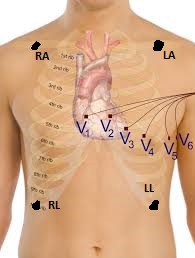
You could describe the adventure as being dialogue-driven, but that would cause two problems. It is, in effect, a point-and-click adventure game, only with the puzzles and the plot stripped back.

You move Whit around each area, stopping to chat and, occasionally, to interact with the environment. Granted, Where the Heart Leads is Whit’s story, and the other characters are tuned into focus by his emotional antenna, but by rendering the figures in his life as ciphers, do you not deny the player the impact, vivid and physical, that they had on Whit? Surely the last thing you want to think of, when it comes to his wife, Rene, or his brother, Sege-both of whom represent not just “all the little choices” but the major channels that have changed his life-is white noise? Not that it would help: the other characters are presented as silhouettes, through which gust storm clouds of static. We can zoom in a little, but not so far as to give us a good look at any faces. The scenes of Whit’s past, starting on the farmstead of his childhood, are shown to us from a high angle, which we can swivel, but not by much it’s as if the camera had been wedged into the crook of a tree branch. Rather than concentrate on the business of escape, he falls again, this time into reverie: a journey to the centre of his worth. Disembarking from the bath, Whit finds debris that reminds him of his past, and of his part in shaping the lives around him, for good or ill. It also belongs to a fine tradition of cavities that fiction has thrown our way, the better to tip us out into Wonderland, say, or take us to an isle that time forgot. This sinkhole is less a phenomenon of geology than of psychology-of the shifting bedrock of regret that grinds softly under our days, waiting, perhaps, to give way. You may, at this point, have detected the ripe smell of symbolism. “What if I’d done things differently?” It’s a fair question, one of those idle, road-not-taken musings but I have to say, given that Whit has just plummeted into a sinkhole, he need only ponder the big choice of the last ten minutes: Should he really have attempted to lower himself into the abyss, with a bathtub and a winch, to rescue the stranded family dog?Īfter an eerily long drop, he doesn’t hit the bottom.

“It’s strange to think about all the little choices that got me here,” he says. Rather, it tells the story of the telling-spreading Whit’s life out, like a sheaf of papers, shuffling through its bends and margins. To say that Where the Heart Leads tells the story of a man named Whit Anderson wouldn’t be quite right.


 0 kommentar(er)
0 kommentar(er)
